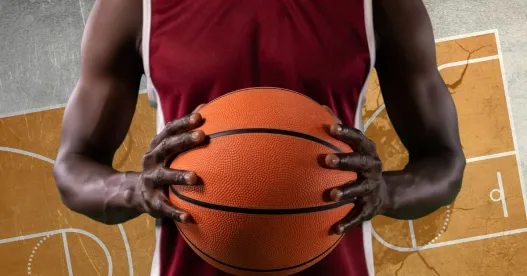The NIL arms race continues as states amend their name, image, and likeness (NIL) laws to gain a competitive advantage. The new trend is to allow colleges and universities within the state to be more involved in the NIL process and protect them from NCAA punishment. These moves come after the NCAA’s first NIL-related infractions ruling. However, the various state laws and bills would allow for colleges and universities to be directly involved with NIL deals while avoiding NCAA punishment, despite NCAA rules to the contrary.
Arkansas was the first state to make a move in this direction, with its governor signing an amended NIL bill into law on April 14, 2023. The new law authorizes colleges, universities, and their supporting foundations to “identify, create, facilitate, and otherwise enable opportunities” for student-athletes to earn compensation from the use of their NIL. The law also authorizes 501(c)(3) organizations within the state to compensate student-athletes for the use of their NIL, meaning NIL collectives affiliated with specific colleges and universities can enter into NIL deals.
On April 20, 2023, the Oklahoma Senate passed SB 840, which makes amendments to the state’s current NIL laws. However, on April 26, 2023, Oklahoma’s governor vetoed the bill. Not all hope is lost, as the governor’s veto was not based on any issues with the NIL bill itself, but instead based on unrelated policy issues. SB 840 passed in the Senate by a wide margin, and there is still the possibility for the Senate to override the governor’s veto.
SB 840 eliminates the need for licensed or registered representation and permits colleges to be compensated for the use of their logos or facilities in relation to NIL activities. The bill also permits colleges to establish agreements with third-party entities to facilitate NIL activities and require student-athletes to take courses in contracts and financial literacy. Colleges can also adopt reasonable time, place, and manner restrictions to prevent a student’s NIL activities from interfering with team activities and school operations. However, students are not allowed to use a school’s logo to obtain NIL compensation.
Oklahoma’s NIL bill also includes a provision that appears to prevent the NCAA from punishing a college or university if a student-athlete violates the NCAA’s NIL rules. Furthermore, the bill prohibits the NCAA from investigating or taking any other adverse action against a college or university that participates in any NIL activity protected under Oklahoma’s NIL law.
Texas’s bill, HB 2804, which passed the Texas House on April 26, 2023, is similar to other NIL laws enacted in other states. However, an amendment added on April 12, 2023, mirrors Oklahoma’s playbook. This amendment prevents any group or organization with authority over an intercollegiate athletic program from enforcing a contract term, rule, regulation, standard, or any other requirement that prohibits the institution from participating in intercollegiate athletics or otherwise penalizes the institution or its athletic program for performing, participating in, or allowing an activity required or authorized by the new law.
Coaches and NCAA leaders have voiced concerns that NIL could disguise “pay-for-play” deals orchestrated by collectives before student-athletes sign national letters of intent or enter the transfer portal. While boosters are not allowed to pay players directly or be part of the recruiting process, the NCAA is actively investigating multiple bad actors in the NIL space. The various state laws and bills could raise questions about the NCAA’s ability to enforce its own NIL rules and regulations in certain states.
While state laws attempting to protect colleges and universities from NCAA enforcement of NIL rules may strengthen the NCAA’s push for federal NIL legislation, the prospects for a federal NIL law in the near future seem bleak. A federal NIL bill has not been introduced in the current Congress, and past federal NIL bills have failed to progress through the legislature. However, as has been the trend with state NIL laws, it is likely that more states will introduce similar laws to those in Arkansas, Oklahoma and Texas. If that happens, Congress may then feel the need to step in with federal legislation to prevent the trend of one-upmanship from continuing.




 />i
/>i

